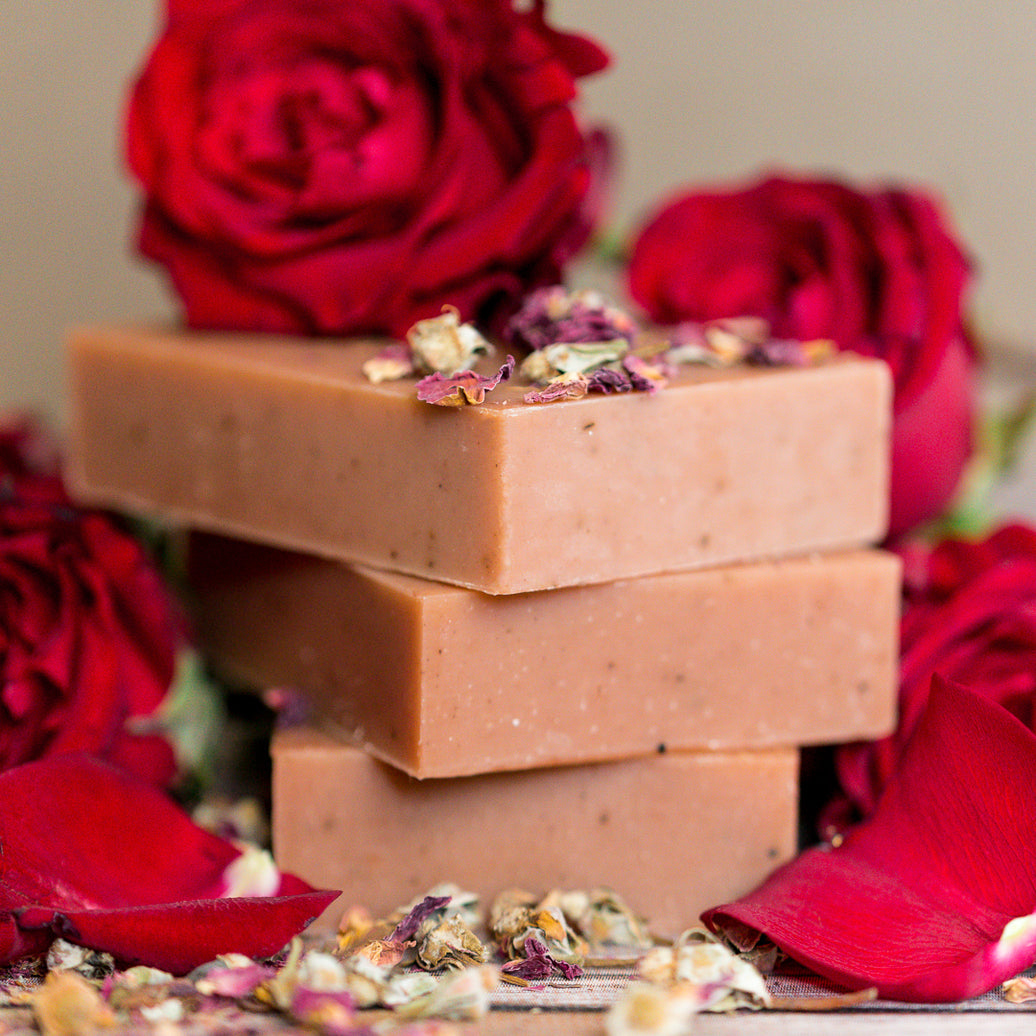
Natural Soap: Shea Rose Clay Complexion
- Out Of Stock
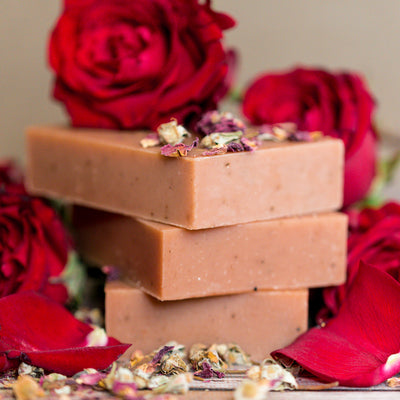

Lather your way to a rosy complexion with this gentle complexion soap infused with a calming floral scent. Hydrating plant oils and butters enriched with nourishing coconut milk gently cleanse and nurture skin while French pink clay and crushed rose petals softly buff away dead skin cells.






Good For: Complexion, Normal to Dry Skin, Sensitive Skin, Maturing Skin
Is your delicate facial skin in need of a little love? Loaded with over 35% unrefined shea butter, enriched with mango butter, rose petal oil, rose hips, rose petals, French pink clay, and organic coconut milk, Shea Rose Clay is an outstanding facial soap that hydrates, soothes and softens skin.
French pink, also known as Rose Clay, is a very gentle and mild kaolin clay that is perfect for all skin types but especially helpful for sensitive and mature skin. Rose clay brightens skin as it gently cleans and exfoliates to remove dead skin cells, clears clogged pores, balances oils, and helps perk up circulation for a healthy-looking glow.
Coconut milk, rich in fat, does more than just moisturize. Its soothing properties may help comfort sensitive skin and alleviate dryness and discomfort associated with irritated skin leaving skin feeling soft and supple. In soap, it creates a silky, rich, and creamy lather.
Hydrating plant oils along with Mango and Shea butters help restore natural moisture, are mild enough for sensitive skin, and may help soothe the dryness and discomfort associated with irritated skin, while crushed rose petals add some gentle exfoliation.
The essential oil blend provides a lovely light floral scent as well as skin-nourishing properties. Soothing geranium essential oil helps create a balance between oily and dry skin. Palmarosa and Ylang Ylang, gentle oils often used in skin care products, are thought to benefit dry, sensitive, or inflamed skin in order to maintain a neutral skin tone.
Our Shea Rose Clay soap pairs nicely with our Rosehips and Sesame Facial Oil
We believe in simple, effective cleansing for your complexion and that is accomplished with natural soap and water. The purpose of soap is to combine with oil and dirt on the body, which allows water to wash it away. The method you use to cleanse your skin, especially your face, is really personal preference. We thought we would share just a few examples.
For problem facial skin we often recommend using this gentle complexion bar directly on the skin. Wet the your face and the bar and gently rub the Shea Rose Clay soap on your cheek area to create a nice lather. Using your fingertips to massage the creamy lather into your facial skin before rinsing allows you to experience the best moisturizing properties of the soap. Rinse well and pat dry.
Hand Lathering is usually the suggested method for cleansing very delicate facial skin.
Washcloth Washers: A gentle massage with a soft cotton washcloth or face pad can help remove dead cells, invigorate your skin, and help keep facial skin smooth and clean.
Notes
Never share washcloths or other accessories and replace or clean them often.
A Few Other Pointers:

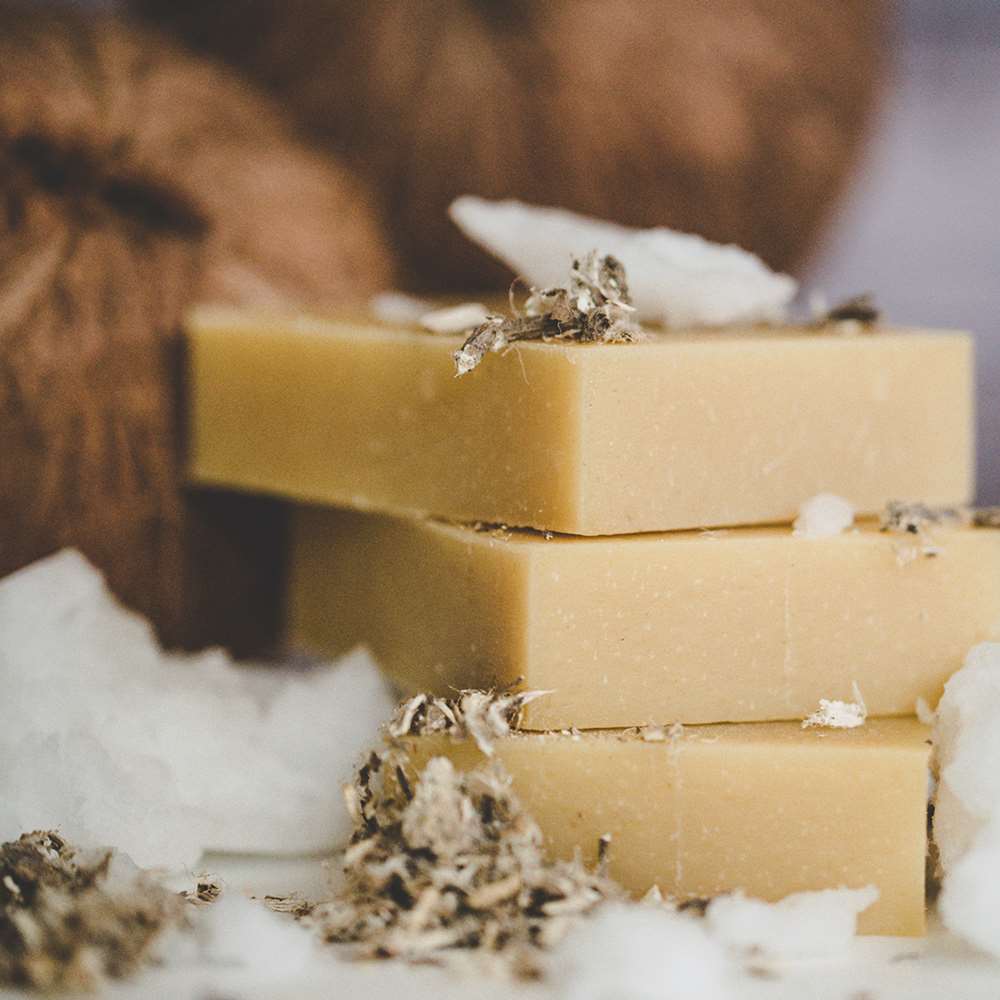
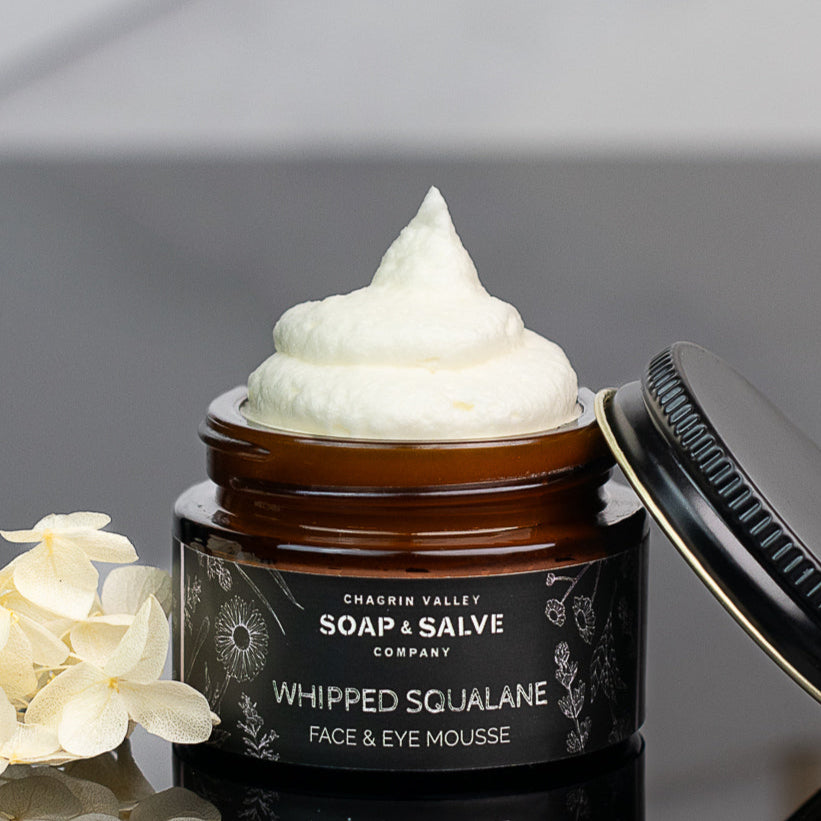
Total price: $42.40
Create Your Own Bundle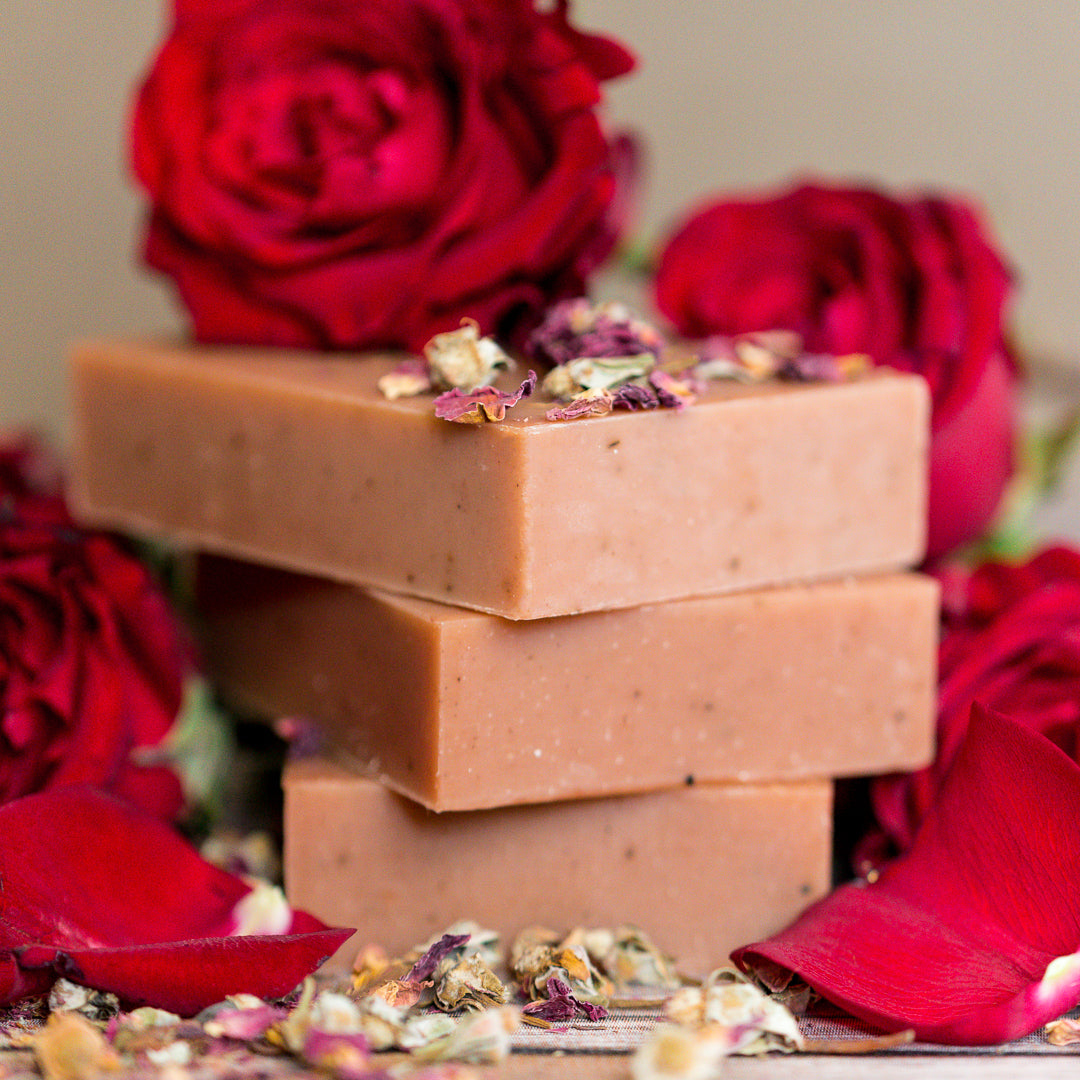
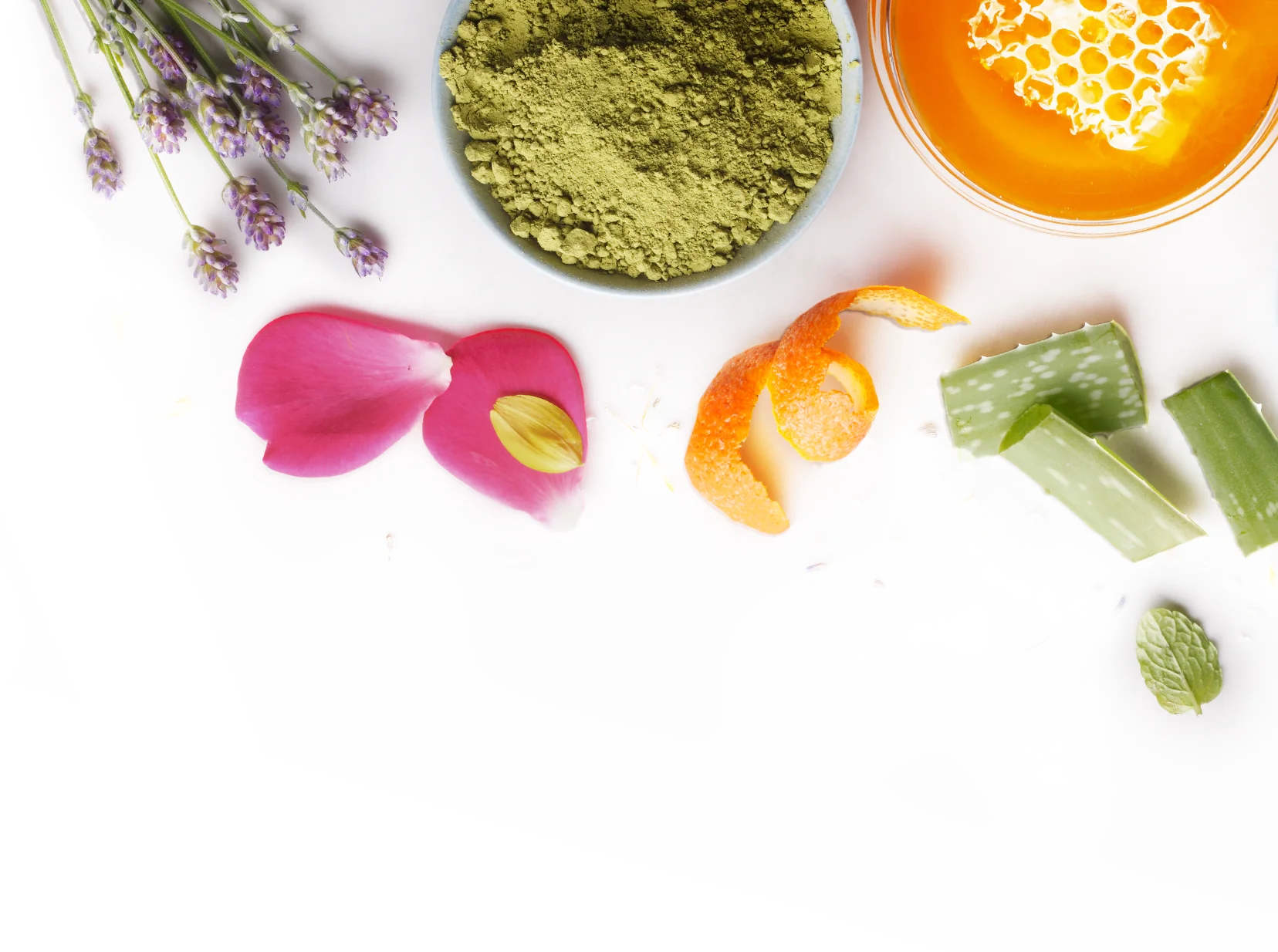
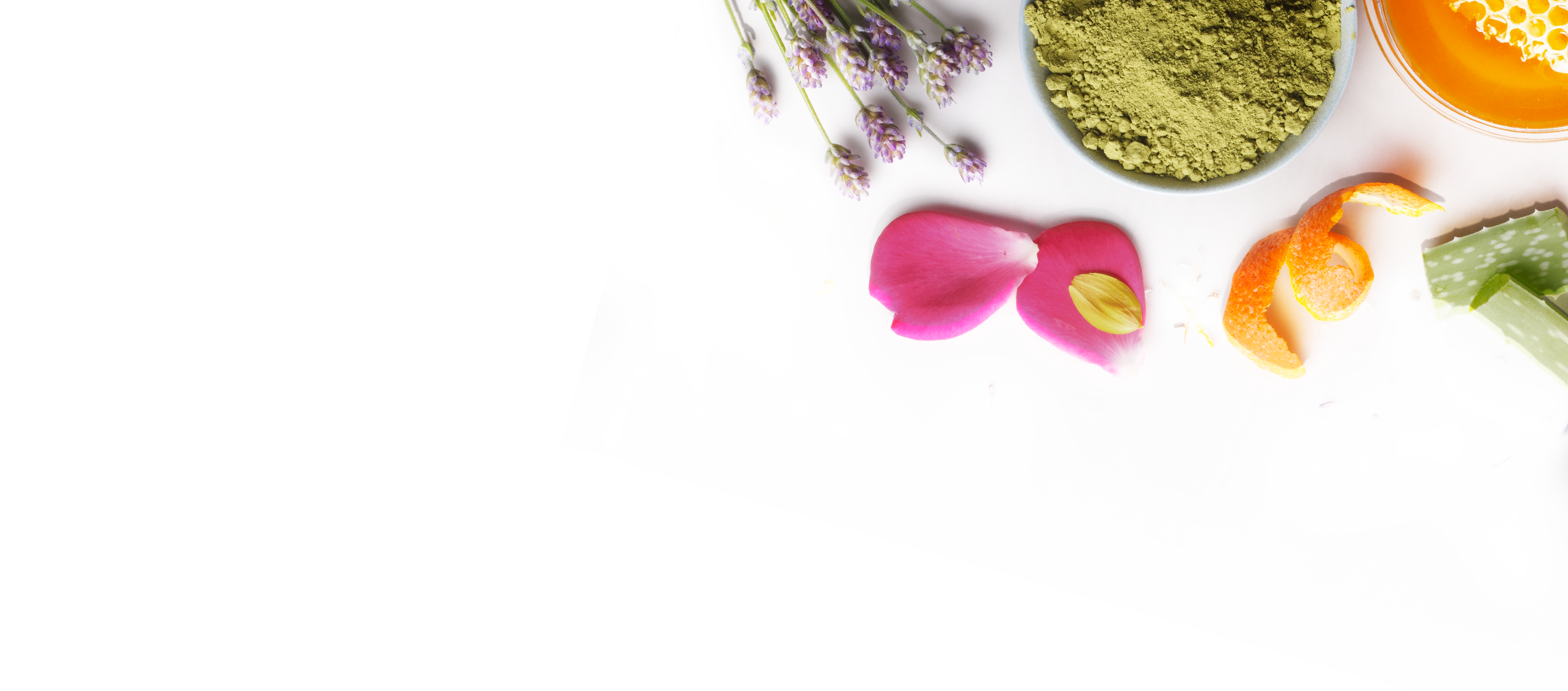
The goal is simple: to Harness the Power & Simplicity of Nature® to cleanse, soothe, heal, and protect your skin and hair!
Our unique formulas rely on moisturizing oils and butters, healing botanicals, and pure essential oils. We choose every ingredient with one end-result in mind….the BEST possible natural skin care for YOU!
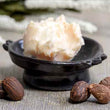
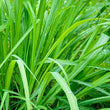
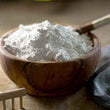
|
*Ingredient is Fair Trade Certified ^Used in the saponification process to turn oil into soap and glycerin. None remains in the finished product.
Made with certified organic Mango Butter, Shea Butter & Rose Petals
|

Regular handwashing is one of the best ways to remove germs, avoid getting sick, and prevent the spread of germs to others.
The CDC (Centers for Disease Control and Prevention) says that for good hand hygiene all you need is plain soap and water.
Clean hands can stop germs from spreading from one person to another and throughout an entire community.
Five simple and effective steps can help reduce the spread of illness so you, your family, your friends and the general public can stay healthy.
CDC recommends cleaning hands in a specific way to avoid getting sick and spreading germs to others. The guidance for effective hand washing was developed based on data from a number of studies.
1. Wet your hands with clean, warm running water and apply soap.
2. Lather your hands by rubbing them together with the soap.
3. Scrub your hands for at least 20 seconds.
4. Rinse your hands well under clean, running water.
5. Dry your hands using a clean towel or air dry them.
To date, studies have shown that there is no added health benefit for consumers (this does not include professionals in the healthcare setting) using soaps containing antibacterial ingredients compared with using plain soap.
Information is taken from the CDC.gov website
Read our blog "Simple Soap Can Help Decrease the Spread Of Viruses"
 Saying a soap is "handmade" says nothing about quality of the ingredients or the knowledge and skill of the soapmaker!
Saying a soap is "handmade" says nothing about quality of the ingredients or the knowledge and skill of the soapmaker!
Chagrin Valley is not just another soap and skincare company. We are committed to healthy skin, healthy people and a healthy planet.
We are a USDA Certified Organic Company specializing in luxurious, organic, handmade natural soaps and shampoo bars rich in natural glycerin for healthier skin and hair.
It's all about the ingredients! Inspired by our love of nature, we use organic herbs, seeds, flowers, vegetables, fragrant spices, fruits, pure essential oils and purifying clays for their exceptional skincare benefits and to provide natural color, aromatherapy, texture, or gentle exfoliation. Nothing artificial, nothing synthetic, no GMO’s, just natural wholesome ingredients.
Our soap making process uses only natural and organic ingredients. Why add artificial ingredients to a handmade product?

"Are All Handmade Soaps The Same?"
"12 Reasons to Use Natural Soap"
NO! Adding antibacterial chemicals to soap does not keep your family safe from germs.
I understand why folks (especially those with children) are choosing products labeled “Antibacterial,” hoping to keep their family safe in the war against germs.
According to Janet Woodcock, M.D., director of the FDA’s Center for Drug Evaluation and Research (CDER).
"Consumers may think antibacterial washes are more effective at preventing the spread of germs, but we have no scientific evidence that they are any better than plain soap and water.
In fact, some data suggests that antibacterial ingredients may do more harm than good over the long-term.”
Simply washing your hands with old-fashioned natural soap and water rids your skin of most fungi, bacteria, and viruses. Soap does not kill germs, it surrounds them and carries them away.
Please read our blog: Antibacterials: More Harm Than Good!
We sometimes receive emails that go like this:
The good news is that when you purchase natural soap from an organic skincare company, it is scented with only pure essential oils.
The bad news is that when you purchase natural soap from an organic skincare company, it is scented with only pure essential oil.
The scent of an essential in any totally natural product can and will change over time and from batch to batch.
Essential oils come from nature. The quality and scent of essential oils are affected by yearly weather conditions and varies from crop to crop and region to region.
This makes it very difficult to produce finished products in which the scents are always exactly the same.
Most commercial soaps (and skincare products), even some of the "natural" ones that contain some essential oils, are made with at least some synthetic fragrances oils, nature identical oil, or natural fragrance oil. Using any synthetic fragrance ensures a more consistent scent.
Essential oils are temperamental to work under any circumstance. But while a natural essential oil scent blend may change a bit in a cream or oil, these blends are especially unpredictable when making cold processed natural soap.
After all my years of soap making in never ceases to amaze me just how much the actual soap making process changes the scent of an essential oil blend.

Natural Soap and Essential Oils
Why We Use Only Real Plant Essential Oils?
Natural Fragrance Oil? . . . Really?
Why Are Synthetic Fragrance Oils So Popular?

The most important consideration in any business is its customers. Today's world of misleading claims, false advertising, and simple deception, often leaves consumers trying to discover the truth about personal products and their ingredients.
Some of my favorite products are made with ingredients that just do not exist as certified organic. Why? At this time there are no standards created for ingredients specifically used in the personal care product industry. Organic certification of personal care products is based on the organic food standards set by the National Organic Program of the USDA.
But since we are a certified organic company, we are required to submit documentation that even our "non-organic ingredients" were produced without the use of toxic pesticides, genetically modified organisms (GMOs), sewage sludge, or irradiation.

Why Did We Become a Certified Organic Company?
What Do All of the Organic Labels Mean?
We often receive emails from concerned customers that have read about the devastating effects that palm plantations can have on tropical forests.
At Chagrin Valley Soap we treasure our planet and its inhabitants. We know that although we play a very small part, we must always make choices that are ecologically and socially responsible.
As the global demand for palm oil continues to increase we want to be part of the global initiative that changes how that palm oil is grown.
Our Palm Oil is grown and manufactured according to standards for sustainable practices set forth by Palm Done Right.
Certified sustainable by RSPO (The Roundtable on Sustainable Palm Oil) and Palm Done Right

Our USDA organic palm oil variety carries RSPO Certification, otherwise known as Roundtable on Sustainable Palm Oil, guaranteeing the sustainability and traceability of the palm oil production throughout the supply chain.
It has RSPO-IP (Identity Preserved) certification which is one of four certification levels offered by the RSPO and carries the highest and strongest level of sustainable guarantee with traceability of each lot of palm oil back to the field of origin. With Identify Preserved sustainable palm oil, the entire batch of palm oil is from a single identifiable certified source and kept separate from all non-certified batches.

Palm Done Right presents the first fully integrated, 100 percent organic supply chain in the palm oil industry. Palm Done Right requires a fair labor certification, organic certification, Non-GMO Project Verification, and has the highest level of certification — Identity Preserved — offered by the Roundtable for Sustainable Palm Oil (RSPO).
As the global demand for palm oil continues to increase, we believe that if both manufacturers and consumers demand Certified Sustainable palm oil, producers will grow Certified Sustainable palm oil. That is the only way to really protect our rainforests.
If there is no demand for sustainable palm oil, growers will continue their cheaper unsustainable practices, because no one is paying them for a sustainable product. (If you build it, they will come!)
Please read our blog, "Will A Palm Oil Boycott Really Help?"
 If you are asking the question:
If you are asking the question:Do you use lye (sodium hydroxide) to make Chagrin Valley natural soap?
The answer is -- yes, of course.
No lye -- No soap!
All REAL soap is made with lye (sodium hydroxide mixed with a liquid).
Any skin or hair cleansing product made without sodium hydroxide is not soap, it is a detergent.
Is there lye in a bar of Chagrin Valley Natural Soap or Shampoo?
The answer is "No."
When the chemical reaction of making soap, called saponification, is complete, the lye and oil molecules have combined and chemically changed into soap and glycerin.
If the soap is made properly, the lye is used up in the saponification process to turn oil into soap.
There is no lye present in the finished bars of soap or shampoo. While all real soap must be made with lye, no lye remains in our finished product after saponification (described below).
If it is real soap or contains read soap, it is made with lye!
Some commercial "soap" bars and all handmade soap bars are made with lye even though the words "sodium hydroxide" or "lye" do not appear on the labels. Does your bar of "soap" contain ingredients such as...
These words are not usually used to deceive consumers. But soap makers know that consumers are afraid of the word "lye."
At Chagrin Valley we believe that today's consumers are pretty savvy and the best practice is to educate.

"Is There Lye in Natural Soap? Won't it Harm My Skin? Information about lye and the chemistry of soap making
Have you ever enjoyed the scent of a fragrant flower or herb? The fragrance comes from potent, aromatic compounds called essential oils found in the flowers, stems, seeds, bark, roots, fruits, and other parts of plants. It often requires several pounds of a plant to produce a single bottle of essential oil.
Essential oils not only give plants their unique scents but also help lure plant pollinators and protect plants from insects and other predators.
The chemical composition of essential oils may provide valuable psychological and physical aromatherapeutic benefits for some people.
It is important to note that to be a true essential oil, the oil must be isolated from the plant material by physical means only. Essential oils are NEVER extracted using solvents.
Although synthetic fragrances or "nature identical" oils are available at a much lower cost, only natural plant essential oils will provide any aromatherapeutic benefits.

What Are Essential Oils (Much more detail)
How Essential Oils Are Extracted
Why We Use Only Real Plant Essential Oils?
If you are pregnant or under a doctor's care for any medical condition, please consult your healthcare provider before using essential oils.
Pregnancy & Children: We do not provide information on the safety of essential oils during Pregnancy or for use in Children because the available information is very ambiguous and often contradictory. If you’re interested in using essential oils during pregnancy or with young children please do your own research and consult your doctor, midwife, or health care professional before use.
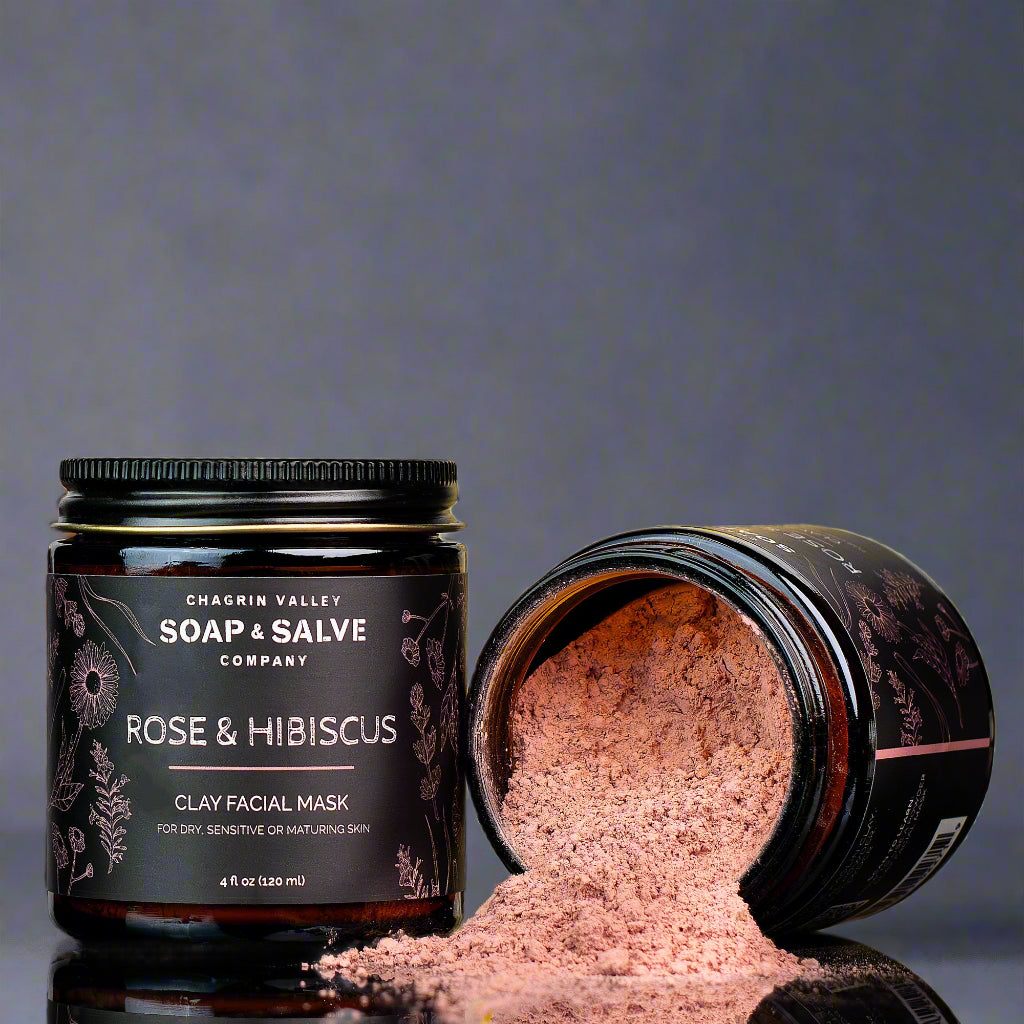
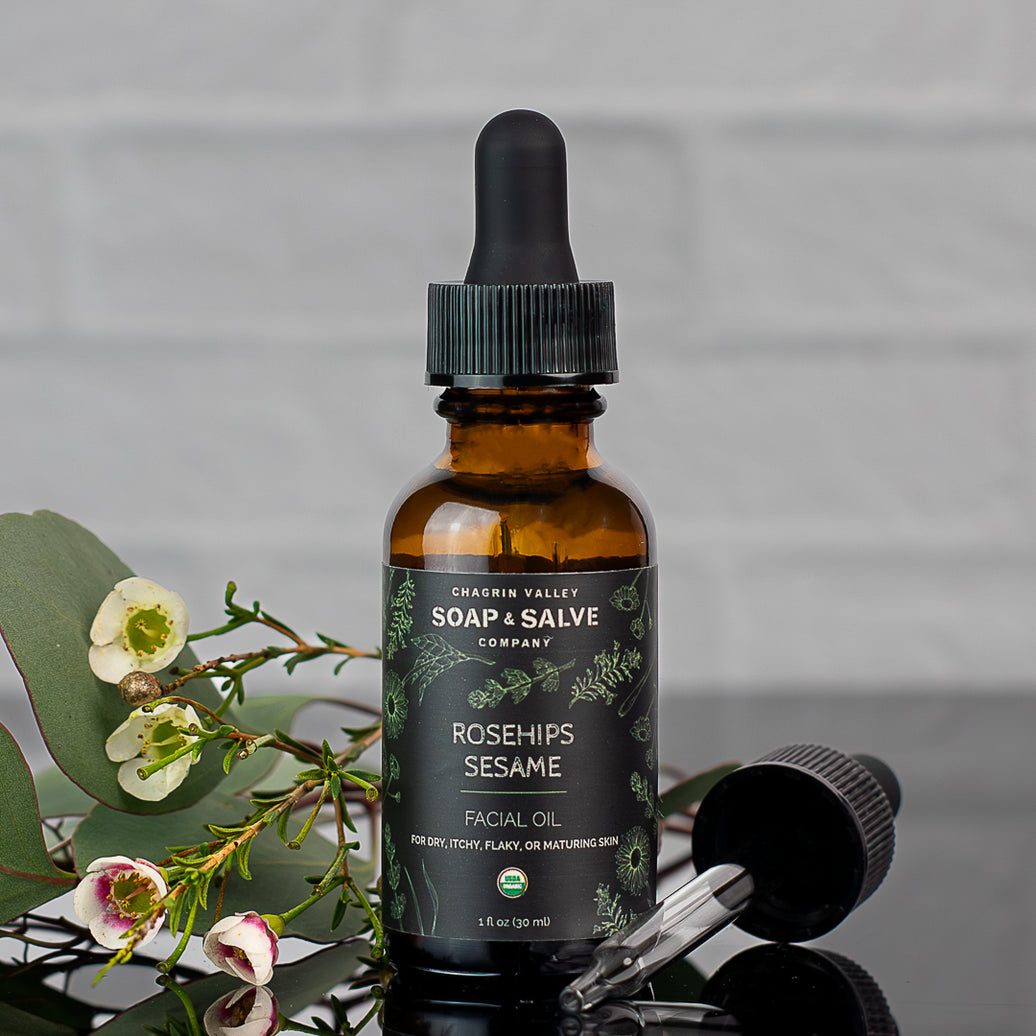
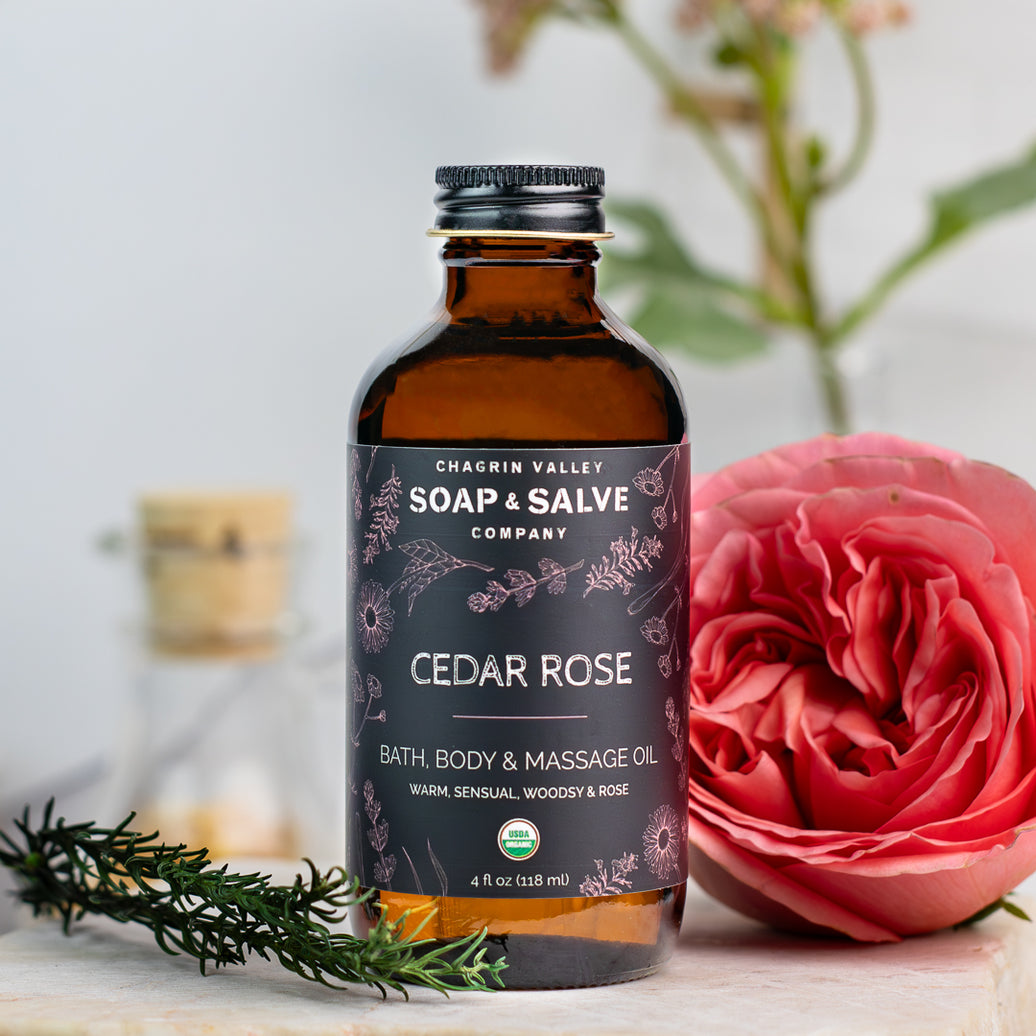
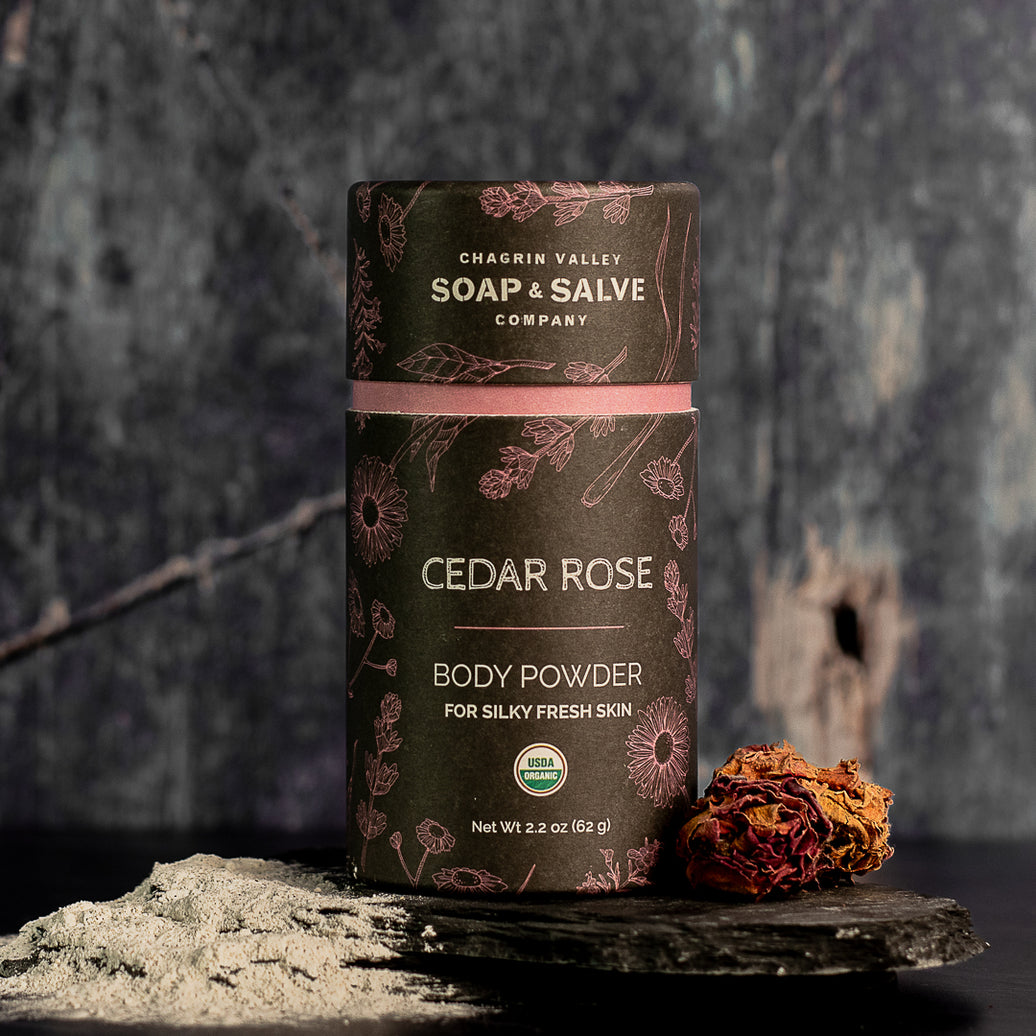
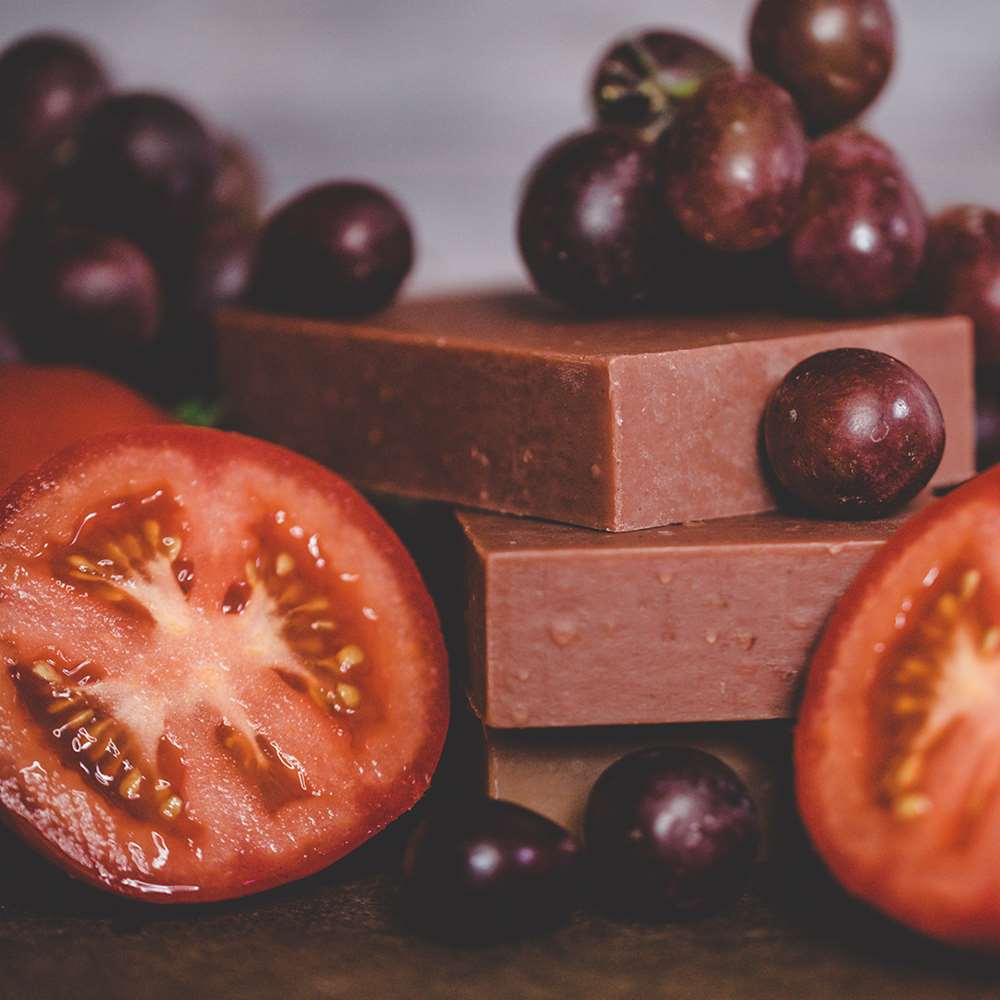
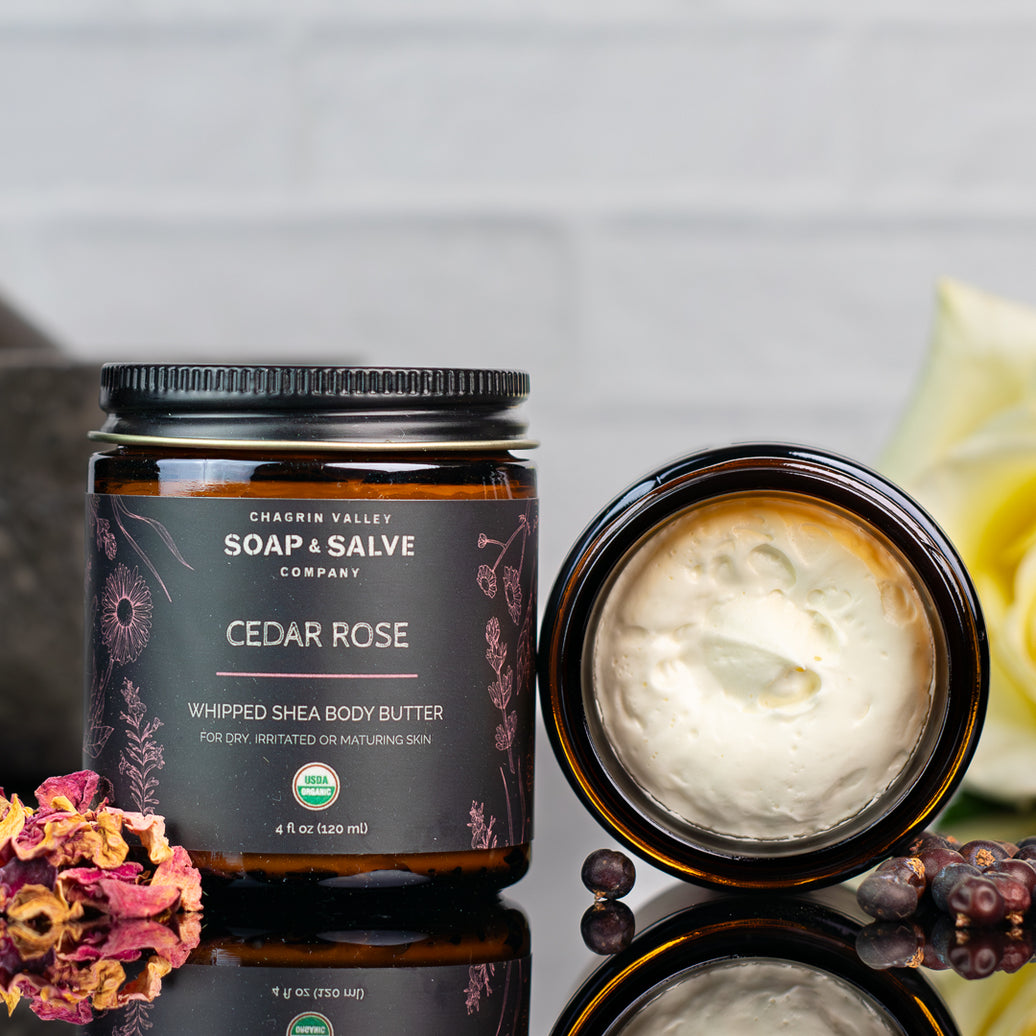
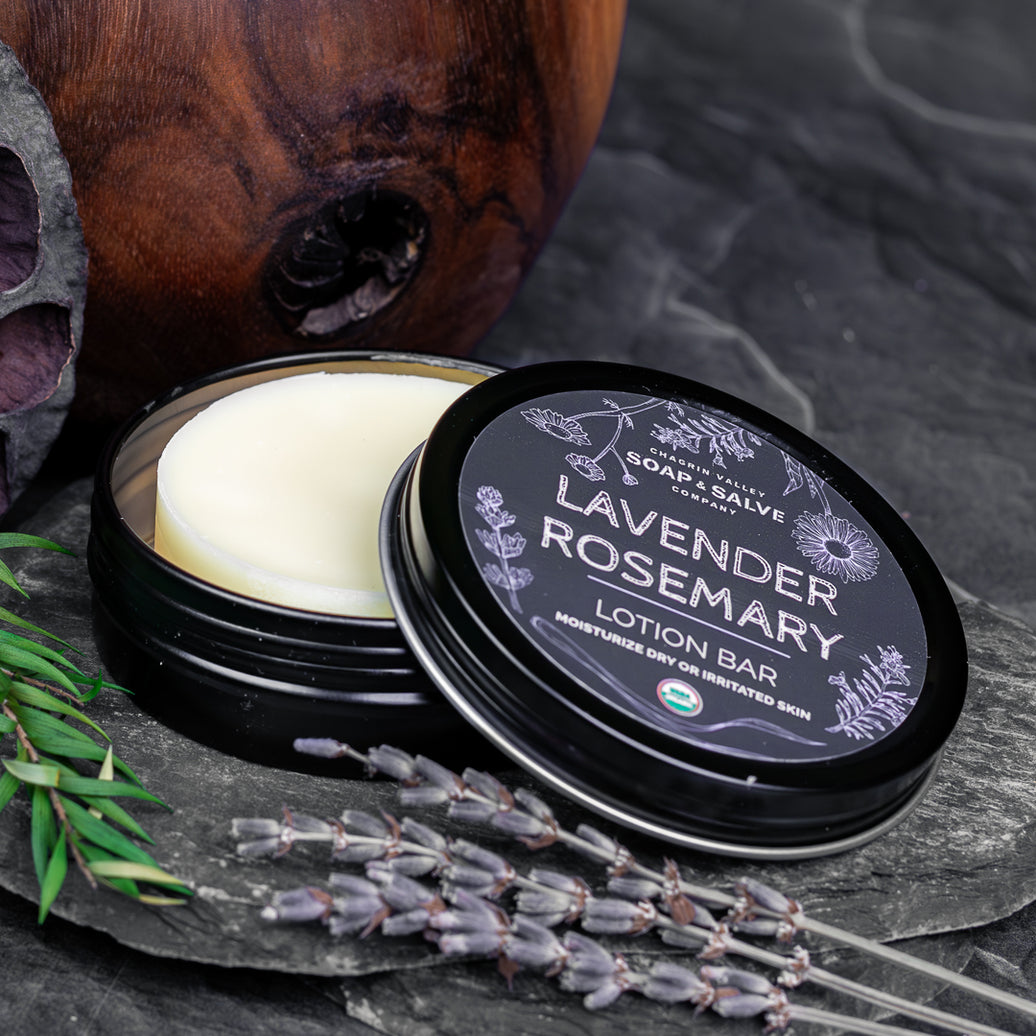
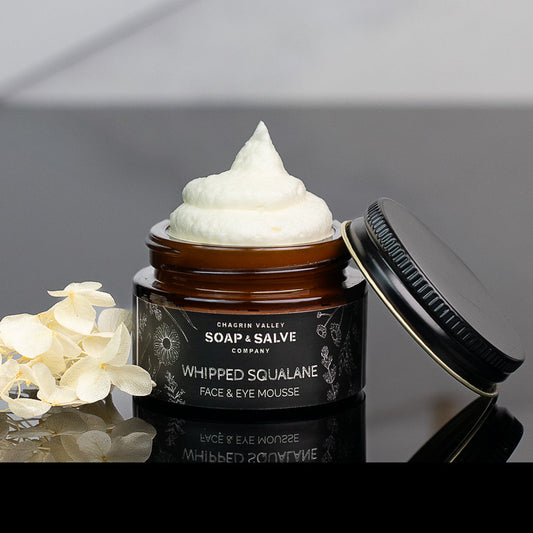
Help Me Choose Facial Skin Care Products: The path to beautiful skin begins with natural cleansing, moisturizing, and exfoliating. Sensitive facial skin is a different from the rest of our skin. Here are some suggestion to help create a personal facial care routine.
Read Post
Help Me Choose a Natural Soap: Your skin type is unique to you! We have compiled natural soap recommendations based on information gathered from friends, family, and customers. We hope this will help you make your choices based on skin care needs and sensitivities.
Read Post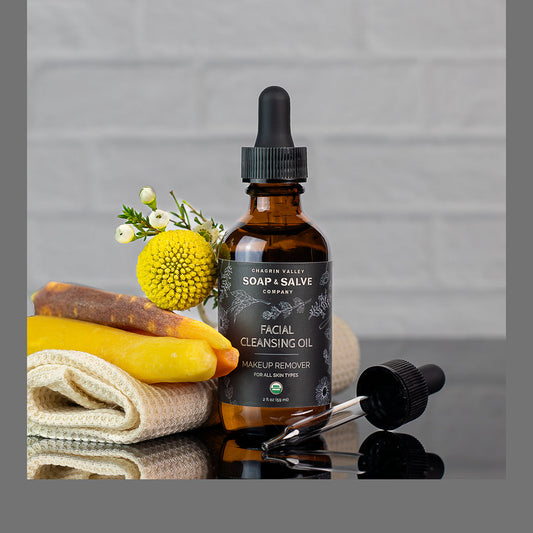
Discover the perfect routine for your delicate facial skin, by exploring the types of natural skin care products needed to maintain a healthy complexion.
Read Post